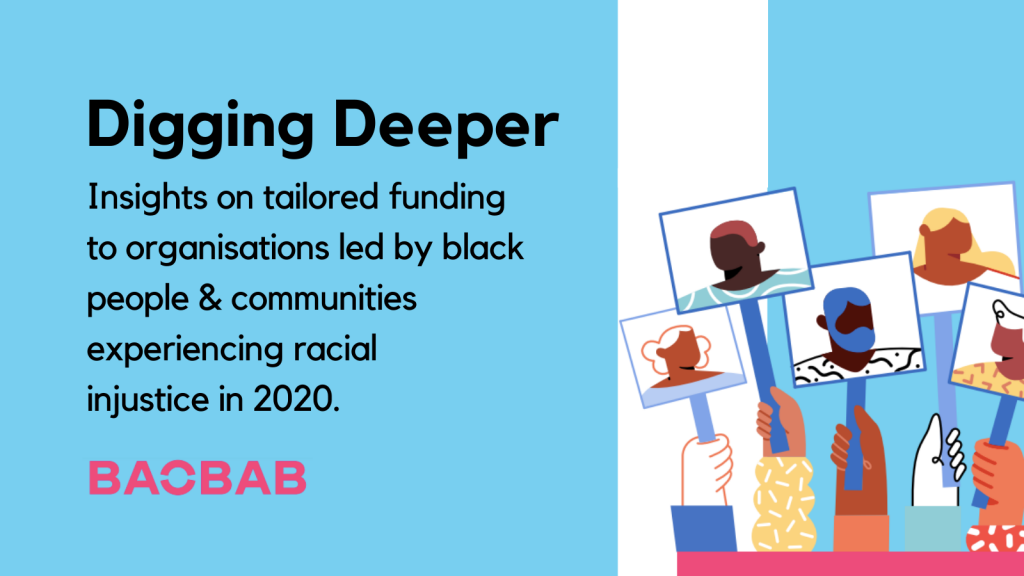We sat down with Baobab Foundation to find out more about them.
New report demonstrates how philanthropists can use their funding to challenge the status quo
A new report launched by Baobab Foundation serves as a reminder to philanthropists that their activities can play a role in fuelling social progress.
The report – ‘Digging Deeper’ – looks into funding programmes designed in 2020. It explores how they reached organisations led by black people and minority ethnic groups experiencing racial injustice.
The research has revealed that despite an unprecedented surge in funding last year, racial inequalities weren’t given the attention they deserved. Consequently, many black and minority ethnic organisations are now at risk of closure if long-term, scaled and flexible investment isn’t achieved.
The Baobab Foundation report offers an alternative narrative to the findings of a recent government report from the Commission on Race and Ethnic Disparities.
What are the recommendations for funders?
The report draws attention to one of the most valuable aspects of philanthropy: its ability to challenge the status quo. In highlighting this, it critically places the burden of responsibility onto funders and funding organisations.
Digging Deeper calls on funders to move away from expecting beneficiaries to adapt to systems which have historically neglected them. Their advice to individual philanthropists and funding organisations includes to:
Consider funding groups outside London and supporting organisations addressing intersectional oppression.
- Provide sustained (5 years +) and flexible funding to organisations led by and for black and minority ethnic communities experiencing racial injustice.
Build partnerships with organisations led by black and minority ethnic communities experiencing racial injustice to tackle structural inequities.
Adopt transformative policies and practices to take ethical investment portfolios to the next level, focusing on anti-racist investments.
Improve cultural competency, representation, and trauma-informed practices across funding to reduce harm.
Work to acknowledge the leadership and labour of people bringing in both technical and lived expertise of racial injustice.
It is a clear from the report that if philanthropy wants to tackle the criticism that it upholds the status quo, then practices on diversity and transparency need to change. The recommendations in this report provide food for thought on how to diversify decision-making and refine funding practice to meet the needs of all minority groups.

